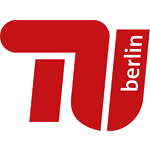Difference between revisions of "Team:Berlin/Practices/Wastewater"
Jpalbrecht (Talk | contribs) |
Jpalbrecht (Talk | contribs) |
||
| Line 144: | Line 144: | ||
<div id="subside-content-workshop"> | <div id="subside-content-workshop"> | ||
| + | <div class="col-xs-11 col-sm-9 blog-text" style="margin-bottom:40px;"> | ||
<h4 class="blue-text project-headline"><FONT FACE="Arial">Berliner Wasserbetriebe</h4></FONT> | <h4 class="blue-text project-headline"><FONT FACE="Arial">Berliner Wasserbetriebe</h4></FONT> | ||
We visited the “Berliner Wasserbetriebe” (wastewater treatment plant of the city of Berlin), in | We visited the “Berliner Wasserbetriebe” (wastewater treatment plant of the city of Berlin), in | ||
| Line 165: | Line 166: | ||
“Berliner Wasserbetriebe” for the time they offered us and are very grateful for their help in | “Berliner Wasserbetriebe” for the time they offered us and are very grateful for their help in | ||
our project. Here are some impressions of this awesome day at BWB:<br/><br/> | our project. Here are some impressions of this awesome day at BWB:<br/><br/> | ||
| − | </div> | + | </div></div> |
<img style="max-heigth:650px; max-width:450px;" src="https://static.igem.org/mediawiki/2015/2/2a/Team_Berlin_BWB_1.jpeg"/> | <img style="max-heigth:650px; max-width:450px;" src="https://static.igem.org/mediawiki/2015/2/2a/Team_Berlin_BWB_1.jpeg"/> | ||
Revision as of 17:04, 18 September 2015
Berliner Wasserbetriebe
We visited the “Berliner Wasserbetriebe” (wastewater treatment plant of the city of Berlin), in Ruhleben, at the beginning of our project. We wanted to see, learn and experience with our own eyes the processes that wastewater goes through once it reaches the treatment plant. For us this was a key step in our project because it provided insights about the possibility of including our research and solutions in already established facilities. We were extensively informed about the history, and the construction of this wastewater treatment plant. We were allowed to see every purification step and were enlightened about the technical structures. Also, we discussed about necessary changes for the future and about a changeover of the plant. Moreover, we acquired an overview about current problems and basic approaches for the optimization of the plant. We consulted with employees of the plant and talked about current research works about microplastics and others, including drug residues present in water. Another subject we brainstormed about was the form, the size, and the place of action of our project called Enzymatic Flagellulose, that aims to eliminate microplastics through degradation. It was a nice experience to see how the plant actually works and to see how complexly the whole plant is constructed. They kindly offered to test our prototypes in the future and to provide additional guidance about the possible logistics to implement a microplastics degradation unit in the system. Additionally, they offered us to link us to other research groups in the wastewater treatment field and some possible contacts for funding. We thank the “Berliner Wasserbetriebe” for the time they offered us and are very grateful for their help in our project. Here are some impressions of this awesome day at BWB:



Thanks to
















